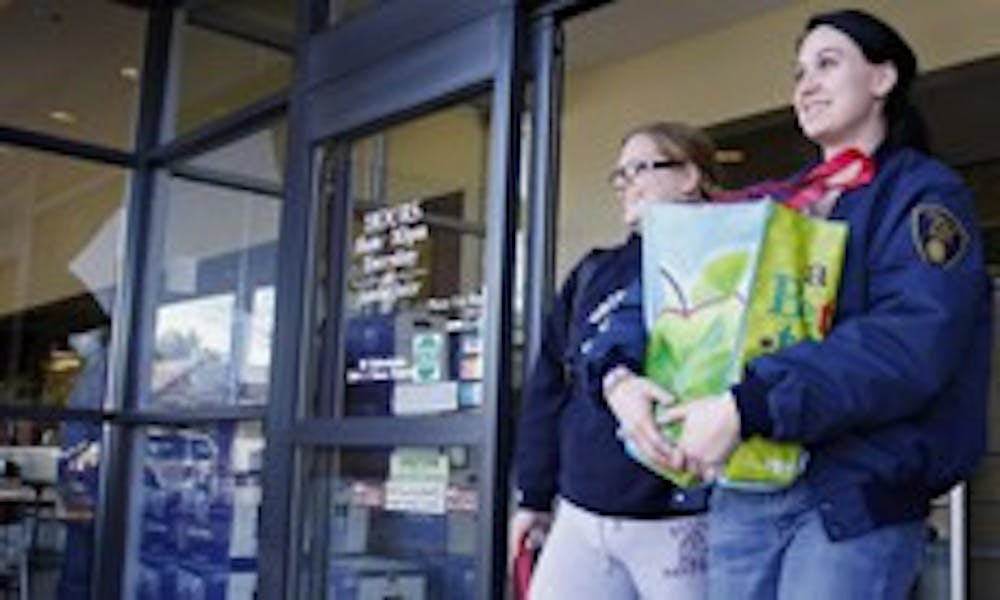For organic grocery store Whole Foods, the difference between them and the competition is in the bag.
The national supermarket chain, including its two Tempe locations, will stop using plastic grocery bags starting Earth Day, April 22.
Company spokeswoman Stacey Pearson said the plastic bag ban is a "natural step" for Whole Foods.
"Our company tries to improve the environment every way it can," Pearson said.
Plastic bags, unlike paper ones that can be more conveniently recycled, take up large amounts of landfill space, Pearson said. She estimates that after one year, Whole Foods will have kept 100 million new bags out of the environment.
"The plastic bag ban is the first step to reducing waste," Pearson said.
Keeping bags out of landfills is especially important, Pearson said, because the bags take a thousand years to break down.
"It's pretty striking to think every plastic bag created still exists on the planet," Pearson said.
As an alternative, Whole Foods will offer recycled paper bags and encourage shoppers to bring their own reusable bags.
Switching to just paper will not increase the company's costs by much, Pearson said, and added that what is more important to Whole Foods is the cost to the environment.
Though the plastic bag ban means a change for shoppers, Pearson said most of the Whole Foods clientele share values of being environmentally conscious.
"Our shoppers are thrilled," Pearson said.
Shoppers in San Francisco, Toronto and Austin, Texas, where a test of the plastic bag ban began last year, have already shown a good response, Pearson said.
Banning plastic bags is an idea that is "gaining momentum," Pearson said.
One other Tempe store, Ikea, already charges customers more for using plastic bags and signs posted throughout the store promote reusable Ikea bags.
Plastic bag bans are gaining momentum in New York, China and Australia according to the advocacy site and online store reusablebags.com. Ireland began taxing the bags in 2002, leading to a 90 percent drop in the bags' use.
Microbiology senior Stacey Shelton said she is not surprised that Whole Foods is banning plastic bags, because the store has an environmentally friendly image.
However, she said the policy would not make her any more likely to shop there. Factors like price and quality were the most important to her, Shelton said.
"I'm not very concerned with being green," Shelton said.
But to Emily Harris, a secondary education and political science sophomore, environmentalism is a daily concern.
The Hassayampa community assistant said she tries to encourage students on her floor to recycle. Harris added that she likes shopping at Ikea because the store doesn't use disposable bags.
Though Harris said she supports environmentalism, she doesn't foresee the plastic bag ban becoming widespread.
"I think it's ideal, but I don't think our nation is progressive enough," Harris said.
Reach the reporter at: ckoerner@asu.edu.




